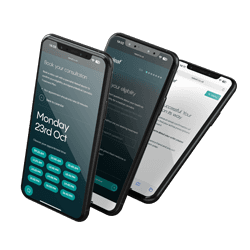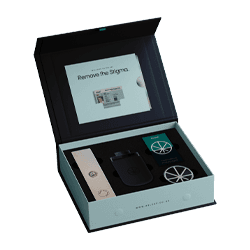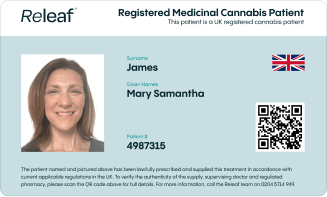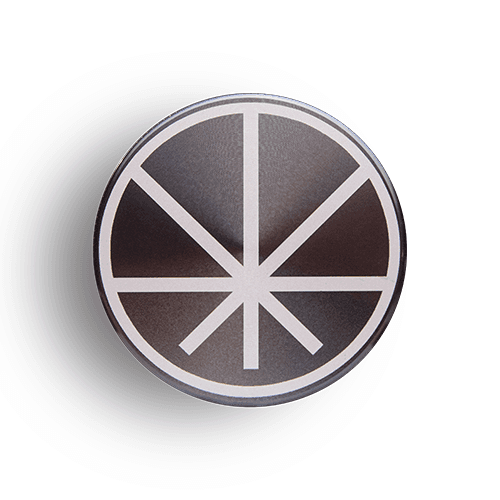Anxiety comes in many forms, with diagnoses including:
While traditional treatments are proven to be effective, they also come with certain drawbacks. Therapy is an amazing tool, and current science has shown beyond a shadow of a doubt that certain forms of therapy can be extremely beneficial for people dealing with all forms of anxiety. But the current pharmaceutical options do come with some pretty heavy side effects, and the possibility of dependence and withdrawal.
The most commonly prescribed drugs for mental health issues like anxiety are benzodiazepines, anti-depressants and beta blockers. Generally, individuals with anxiety will first be offered a form of therapy called cognitive behavioural therapy (CBT). Having honest, open communication with your doctor and therapy providers is crucial for a treatment plan to be effective. Sometimes, however, patients feel they have exhausted these avenues, leading them to research alternative options.
While there can be many effective treatment options, some medications may have more risky side effects, and the dangers of such pharmaceuticals are well documented. Some medications have side effects such as memory loss and addiction, and can be dangerous in large doses. Withdrawal symptoms that are linked to benzodiazepines, for example, can at times be life-threatening and are often compared to opioid withdrawals.
It is, in large part, due to these concerns that many people are looking for options that can work hand in hand with current conventional therapies, while also offering less serious adverse effects. Leading the charge is medical cannabis.
Understanding CBD
Cannabidiol (CBD) is a molecule derived from hemp and cannabis plants. It belongs to the phytocannabinoid family which also includes THC, CBN and CBG along with more than one hundred others. CBD is non-intoxicating, meaning it doesn’t produce the same high that THC does, and it won’t get you ‘stoned’.
Cannabinoids interact with our endocannabinoid system (ECS) in many ways. While researchers are still looking for the exact answer as to why CBD offers the potential for medical benefit, it is thought that CBD slows the degradation of our own cannabinoids, allowing for much stronger interactions with longer-lasting effects. THC, on the other hand, has been proven to interact very strongly with the CB1 and CB2 receptors in our bodies, leading to its psychotropic effects.
Research on CBD and anxiety
The research into CBD and anxiety has been ongoing for some time, with the majority of studies so far focusing on animal models. This is due to the real struggle that researchers have had to access cannabis, thanks to the legal restrictions that have been placed on the plant in the past century or so.
Thankfully, the shift we are currently living through in terms of both medicinal and recreational cannabis legality, and the way that the public view the plant, is resulting in some very exciting and useful studies.
The initial evidence that has been gathered so far definitely suggests that CBD may be a potential treatment for a wide range of anxiety-related disorders. But there is still a need for much more in-depth, peer-reviewed research and clinical study before we can make any concrete claims.
This study from 2017 looked at anxiety from a public speaking standpoint. The results were very promising and showed that a medium-sized dose of 300 mg may heavily reduce the post-public speaking anxiety that so many of us feel. Participants that were given what is considered to be a higher-end-of-the-scale dose, 600 mg, also reported that they felt much lower levels of anxiety during public speaking.
Another study aimed to see how well CBD could be administered to help those battling social anxiety disorder. Again, subjects were given a mid-range dose of 400 mg of CBD (or a placebo) in a double-blind procedure. The results were extremely promising, with participants that were given CBD reporting significantly decreased subjective anxiety when compared to the control group.
Another area of study where CBD shows great promise is in the reduction and control of PTSD symptoms. PTSD can be a life-altering condition, with many sufferers suffering from long periods of constant severe symptoms.
This controlled cohort study, while only small in scope, showed that 91% of participants (10 from 11) "experienced a decrease in PTSD symptom severity". This study allowed the participants access to CBD over an eight-week period, with a flexible dosing regimen.
How to take CBD for anxiety
If you are interested in accessing CBD in the UK, then the timing couldn't be better. In November 2018, new legislation was introduced that made access to medical cannabis a reality. There are now many avenues for patients to access CBD products, but the first thing you must do is consult with a doctor. Here at Releaf, we make the process of receiving your medicinal cannabis card as straightforward and hassle-free as possible.
CBD is available in many forms, with the majority of anxiety sufferers choosing to take CBD oil. This is mostly due to its convenience; oils can easily be taken sublingually (under the tongue), or mixed with a food/drink of your choice. There are also edibles, tinctures, topical creams and capsules available, as well as a whole host of other options available.
In terms of dosage, this is something that must be discussed with a doctor. It is also important to remember that CBD alone may not be enough to treat anxiety symptoms, but looks to be a great addition to any anxiety treatment plan.
You should never consider changing your current medication/therapy regimen without prior medical advice. It is extremely important to consult your doctor before stopping or changing any prescribed medication. This is because it can lead to dangerous side effects and withdrawal.
Conclusion
Medicinal CBD has become increasingly popular in the UK as more and more research is conducted into its potential medical benefits. Initial findings are very promising, especially when it comes to its application as an anxiolytic. However, CBD should never be viewed as a replacement for traditional medical treatment. While this article provides up-to-date info regarding CBD and anxiety control, all advice should come directly from a medical professional.
If you need an alternative approach to manage your health condition, Releaf is here to help. Don't let the stigma surrounding medical cannabis prevent you from getting a suitable treatment. Releaf provides tailored monthly packages, specialist consultations for medical cannabis, and a unique medical cannabis card for protection, all based on your medical cannabis prescription.





